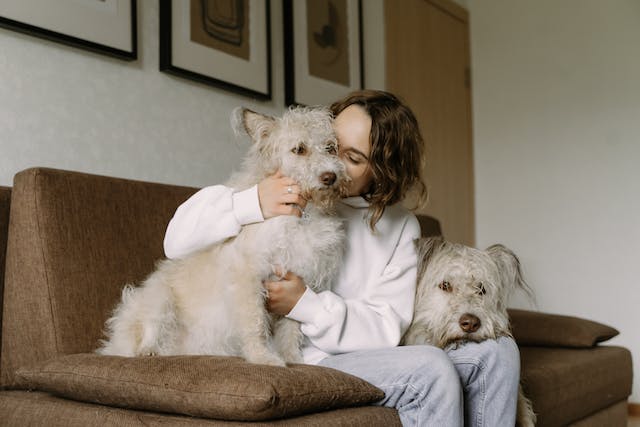 As owning pets become more popular it may be time to consider allowing them into your rental. Offering a pet-friendly rental space broadens your market base and gives you more top-quality tenants to select from. However, you should also create a solid pet screening procedure to limit the risks of property damage.
Pets can create mayhem and ruckus that can earn reprimands from neighbors and other tenants. You might even receive some complaints. So it is best to manage these potential issues by doing a property screening of the pets before accommodating them in your rental place.
As owning pets become more popular it may be time to consider allowing them into your rental. Offering a pet-friendly rental space broadens your market base and gives you more top-quality tenants to select from. However, you should also create a solid pet screening procedure to limit the risks of property damage.
Pets can create mayhem and ruckus that can earn reprimands from neighbors and other tenants. You might even receive some complaints. So it is best to manage these potential issues by doing a property screening of the pets before accommodating them in your rental place.
Benefits of Being a Pet-Friendly Rental
- Tenant Retention: Going from one rental to another with your pets can be exhausting for the pet owners so tenants tend to stick around in one place if they see their pets comfortable in an area. Animals prefer familiar surroundings rather than frequently adjusting to new places.
- Larger Pool of Potential Tenants: With fewer landlords accommodating tenants with pets, you have access to a wider demographic. Your neighborhood can have plenty of rental spaces, but if you’re the only one catering to tenants with pets, then this can work well for you. You can also set a higher rent by offering this privilege to pet owners.

- Responsible Tenants: Caring for a pet requires a sense of responsibility since you need to have a proper schedule for feedings, exercise, and checkups. Since they are responsible in their personal life if it is likely that they are when it comes to their tenant responsibilities as well.
What Is Pet Screening?
Just like tenant screening, landlords need to follow through with a pet screening process to protect their rental properties from damage. It is helpful to have detailed information about a pet, particularly its health conditions and behavior issues. To ensure a pet matches your criteria, you can meet with the owner and pet in person, and request for them to complete an application. In addition, you can also ask for health screening documentation that lets you know the health condition of a pet.Pet Screening Application
You can prepare a application process that helps you evaluate a pet based on different factors, such as:- Kind of pet and breed
- Pet weight
- Pet age
- Length of pet ownership
- Proof of pet vaccination
- Pet house-training
- Pet behavior issues
For Dogs
Some things to ask dog owners are whether they- Plan to spay or neuter the dog
- Have let their pets undergo a dog training class

- Have familiarize their pets to use a leash when going on walks
- Clean up after their pets often
- Keep their dogs alone for long periods
For Cats
Some things to ask cat owners are whether they- Plan to spay or neuter the cat
- Use a litter box
- Have their cats registered
- Keep their cats indoors
Meeting In-Person
Though on paper, the pet can pass your criteria with flying colors, you still need to verify the information in person. Pets can easily appear nervous when meeting people for the first time in new places, so manage your expectations during a first-time meetup. You can always hire external specialists to handle the pet interaction stage of the pet screening procedure.Make Specific Pet Clauses Part of Your Leasing Agreements
Ensure pet clauses are stated in your lease and include the- Type of screening you use
- Type of pets you permit
- Fees and deposits that are part of your pet policy
What Pets Should Be Screened and How Often Should Screening Be Performed?
Avoid discriminating against bigger dogs. It is best to follow a consistent screening practice for all pets to limit potential complaints. Remember to ask the pet owner for updated health documents to ensure that the pets have a clean bill of health. You can request new health records during a lease renewal. The screening process may not be as stringent as the first time, but it pays to cover all your bases to reduce potential risks.
You can request new health records during a lease renewal. The screening process may not be as stringent as the first time, but it pays to cover all your bases to reduce potential risks.
Dealing With Pet Fees and Deposits
Pet fees can be charged by landlords to pay for pet screening costs and to cover potential damages. However, service animals are exempted from pet charges. It is advisable to learn about your local state laws before drafting the pet clauses on your lease. In general, landlords charge three types of pet fees:- One-Time Fees: Often not refunded and collected at the start of the lease period and last the entire tenancy period..
- Monthly Rent Fees: Additional charges tenants must pay outside the regular monthly rental fee.
- Pet deposits: Extra charges collected on top of the typical security deposit to ensure property damage caused by pets is covered during the tenancy. However, if the lease ends and the property remains in great condition, the pet deposit is returned to the tenant.

